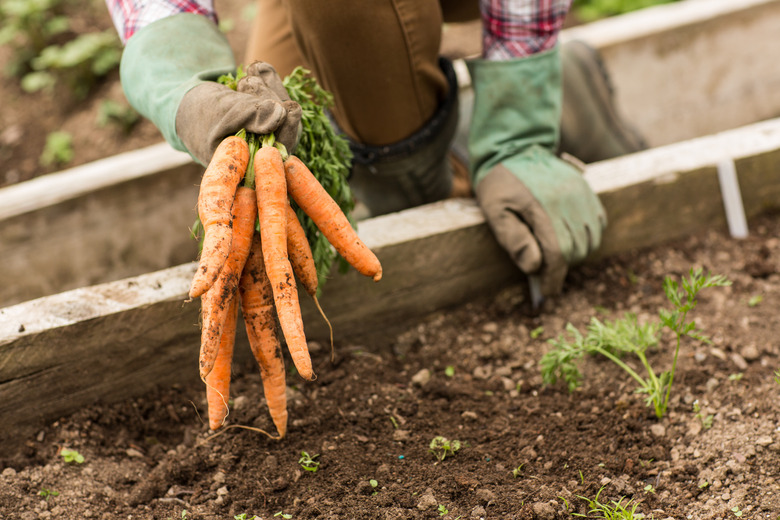Pros & Cons Of Growing Your Own Fruits & Vegetables
Home gardening is gaining popularity in the United States, where renewed interest in self-sufficiency and green living has become widespread. Backyard fruit and vegetable gardens are part of a larger shift toward ecological consciousness and bioregional cuisine. The U.S. Department of Agriculture (USDA) encourages the use of home gardens and provides resources that enable success. However, despite its benefits, backyard gardening is also associated with many drawbacks.
Ecological Impact
Home-grown vegetables require less energy to produce, package and transport than vegetables grown in other locales. Because of this, many environmental activists view homegrown food as a sustainable alternative to supermarket varieties of the same plants. Additionally, many people who grow their own fruits and vegetables use ecologically responsible gardening practices, including compost and chemical-free pest control, to cultivate foods. Prospective gardeners should note that improper use of pesticides and fertilizers–common among novice gardeners–can cause serious ecological problems and health hazards.
- Home gardening is gaining popularity in the United States, where renewed interest in self-sufficiency and green living has become widespread.
- Because of this, many environmental activists view homegrown food as a sustainable alternative to supermarket varieties of the same plants.
Health Benefits
A vegetable garden or backyard orchard can provide incentive for daily moderate exercise. Gardens require a fairly significant input of physical labor, which can help burn calories, build muscles and improve muscle function. People who grow their own vegetables are also more likely to eat fresh, seasonal foods that are high in fiber and low in fat. Home-grown vegetables can also help gardeners avoid unnecessary exposure to toxins in packing materials, cosmetic waxes and pesticide residue.
Financial Considerations
In theory, home gardens should save money; however, this is often not the case. Equipment and supplies for setting up a garden can be surprisingly expensive, and many first-time gardeners find that home-grown fruits and vegetables can cost more money than store-bought alternatives. Nevertheless, large-scale home gardens may provide financial benefits, especially after the initial set-up cost. Perennial crops, which automatically recultivate each year, are more profitable than annual crops.
- A vegetable garden or backyard orchard can provide incentive for daily moderate exercise.
- Equipment and supplies for setting up a garden can be surprisingly expensive, and many first-time gardeners find that home-grown fruits and vegetables can cost more money than store-bought alternatives.
Crop Loss
Home gardeners often experience crop loss due to common pests and wildlife. William Sims of the University of California notes that insect pests are responsible for many cases of crop loss in the Sierra Nevada. Many novice gardeners prevent these problems with chemical pesticides, which cause serious ecological damage and possible long-term health problems. Although some organic pest-control measures are highly effective, they may not successfully prevent the loss of home-grown fruits and vegetables.
Time Input
Home gardening requires a fairly significant time investment, regardless of which techniques are used. Some gardeners may spend several hours each week involved in garden-related work yet may see only a modest crop yield as a reward for their labors. Although gardening is rewarding in its own right, it is a hobby that requires commitment, hard work and passion. For many people, the intrinsic benefits of gardening fail to outweigh the significant labor input associated with it.
- Home gardeners often experience crop loss due to common pests and wildlife.
- Some gardeners may spend several hours each week involved in garden-related work yet may see only a modest crop yield as a reward for their labors.
